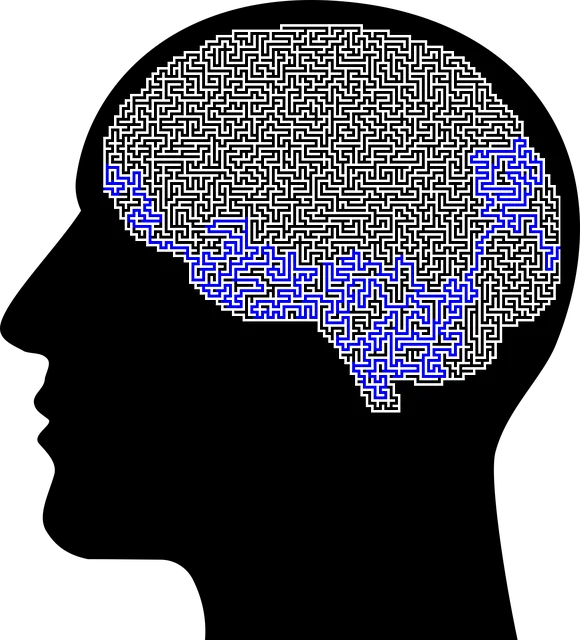Cultural sensitivity is a transformative force in mental healthcare, especially at Kaiser's Englewood inpatient services, catering to diverse patients. It involves recognizing and respecting different belief systems and understanding unique cultural expressions of psychological distress. Effective communication strategies, social skills training, and community-resonating emotional healing processes are integrated into the Kaiser Inpatient Mental Health Program at Englewood, creating a safe, inclusive environment, improving patient outcomes, and reducing stigma. By addressing language barriers, cultural misunderstandings, and therapeutic expectations, Kaiser provides tailored support and accessible resources, promoting equitable access to quality mental health care for all.
“Cultural sensitivity in mental healthcare is paramount, ensuring equitable access to quality care for diverse patient populations. This article explores this critical aspect through three focused sections. We begin by unraveling cultural sensitivity within the context of mental health services, followed by an exclusive overview of the Kaiser Inpatient Mental Health Program at Englewood. Subsequently, we delve into practical strategies to overcome challenges and foster culturally competent practices. By examining these aspects, we aim to highlight Kaiser’s commitment to providing inclusive care in its Englewood facility.”
- Understanding Cultural Sensitivity in Mental Healthcare
- The Kaiser Inpatient Mental Health Program at Englewood: An Overview
- Challenges and Strategies for Culturally Competent Practice
- Promoting Equitable Access to Quality Care
Understanding Cultural Sensitivity in Mental Healthcare

In the realm of mental healthcare, cultural sensitivity is a game-changer that goes beyond simply providing treatment; it’s about understanding and respecting diverse belief systems and practices. This is especially relevant when considering facilities like Kaiser’s inpatient mental health services in Englewood, where a diverse patient population seeks emotional healing. Cultural sensitivity involves recognizing and appreciating the unique ways individuals from different backgrounds express their psychological distress and cope with illness. It requires healthcare professionals to be adept at navigating complex cultural nuances, ensuring every patient receives care tailored to their specific needs.
Effective communication strategies are a cornerstone of this approach. Healthcare providers must foster open dialogues that incorporate patients’ cultural perspectives, incorporating techniques like active listening and culturally appropriate language. Moreover, integrating social skills training and emotional healing processes that resonate with diverse communities can significantly enhance patient outcomes. By embracing these practices, mental healthcare settings, including Kaiser’s Englewood facility, can create an inclusive environment, fostering trust and improving overall well-being for all individuals seeking treatment.
The Kaiser Inpatient Mental Health Program at Englewood: An Overview

The Kaiser Inpatient Mental Health Program at Englewood stands as a beacon of comprehensive care within the healthcare landscape. This program offers a unique blend of clinical expertise and cultural sensitivity, ensuring that patients from diverse backgrounds receive tailored support for their mental health needs. Situated in a vibrant and nurturing environment, the facility leverages innovative practices such as Compassion Cultivation to foster an atmosphere of safety and understanding among residents.
Beyond traditional therapeutic approaches, Kaiser Englewood incorporates various initiatives like the Mental Wellness Podcast Series Production, which provides accessible resources for patients to engage with content tailored to their specific mental health journeys. Additionally, Social Skills Training is integrated into the program’s curriculum, empowering individuals to navigate social interactions with confidence and resilience. This multifaceted approach reflects a commitment to not only address mental health challenges but also to cultivate holistic wellness among all patients.
Challenges and Strategies for Culturally Competent Practice

Cultural sensitivity is a cornerstone of effective mental healthcare practice, particularly when catering to diverse communities like those found in areas such as Englewood, where organizations like Kaiser’s inpatient mental health services are present. The challenges in culturally competent care include overcoming barriers like language differences, cultural misunderstandings, and varying therapeutic expectations. Patients from different backgrounds may bring unique perspectives and beliefs about mental illness, which can impact their willingness to engage with Western psychiatric treatments.
Strategies to address these challenges involve training healthcare providers in cross-cultural communication, promoting diversity in clinical staff, and adapting therapeutic approaches to be more inclusive. Kaiser, for instance, could enhance its inpatient mental health services in Englewood by integrating social skills training tailored to the cultural needs of the community. Public awareness campaigns development focused on Mental Health Awareness can also foster an environment where individuals feel more comfortable seeking support without fear of stigma or judgment.
Promoting Equitable Access to Quality Care

Mental healthcare services should be accessible to all individuals, regardless of their cultural background or socioeconomic status. Organizations like Kaiser, with facilities in diverse areas such as Englewood, play a vital role in promoting equitable access to quality care. By understanding and addressing cultural barriers, mental health professionals can ensure that every patient receives personalized treatment tailored to their unique needs.
Cultural sensitivity involves incorporating compassion cultivation practices and inner strength development into therapeutic approaches. This holistic view recognizes that Emotional Healing Processes are influenced by an individual’s cultural identity and experiences. When mental healthcare providers adopt a culturally competent mindset, they create a safe and supportive environment, fostering trust and encouraging open communication. Such an inclusive approach can significantly enhance patient outcomes and overall well-being in communities like Englewood.
Cultural sensitivity is paramount in mental healthcare, ensuring equitable access to quality care for all. As demonstrated by the Kaiser Inpatient Mental Health Program at Englewood, integrating cultural competency into practice not only improves patient outcomes but also fosters an inclusive environment. By acknowledging and addressing challenges, such as language barriers and differing therapeutic approaches, healthcare providers can navigate complex cultural landscapes effectively. This article highlights the importance of cultural sensitivity in mental healthcare, encouraging professionals to embrace diverse practices to better serve communities, especially in areas like Englewood where disparities exist, including access to inpatient mental health services provided by Kaiser.






